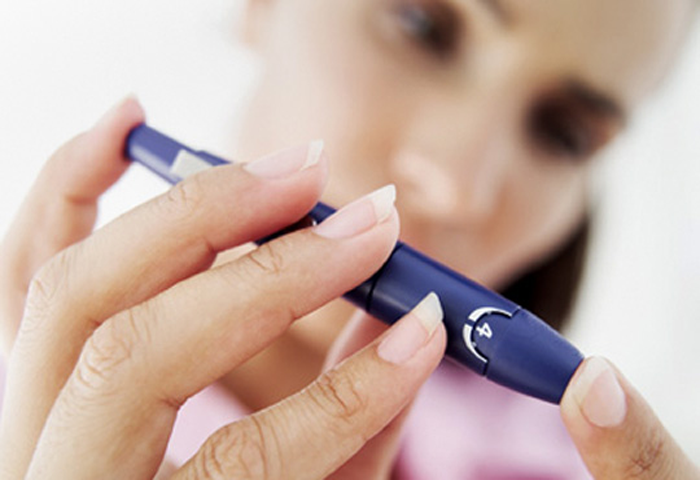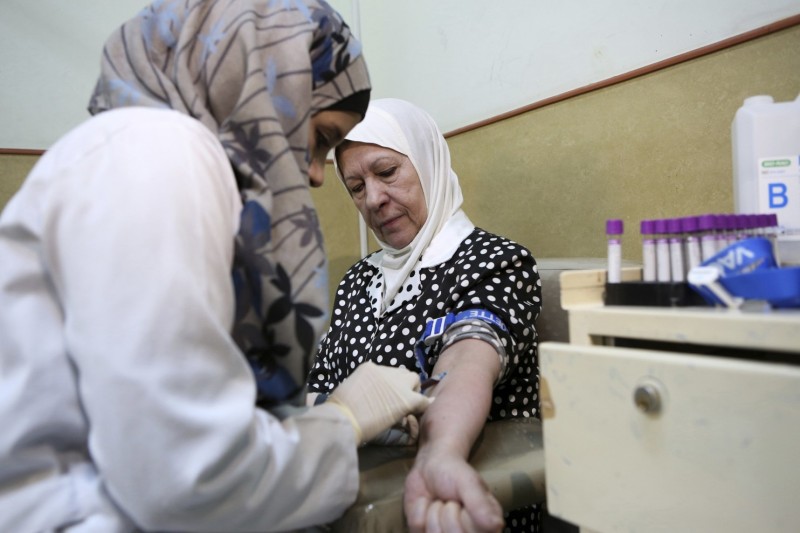6 Common Misconceptions about Fasting with Diabetes
Ramadan is upon us, a blessed month of renewal, family gatherings and, of course, food! For many of us, we must take certain health factors into consideration, like diabetes.
The prevalence of diabetes is soaring in the region, with estimates of one in 10 adults having diabetes, many undiagnosed. Those who have been diagnosed with diabetes are encouraged to look on sites like wholesalediabeticsocks.com to learn more about products that can help them improve or lessen the effects of their condition.

Here are some fasting tips from the Imperial College London Diabetes Centre for people living with diabetes:
In general, people living with Type 1 diabetes are strongly advised to not fast during Ramadan.
If you are a Type 1 diabetes patient and intend to fast, it is very important that you are closely supervised by your doctor and ensure that your blood sugar is regularly monitored to mitigate health risks.
If you are living with Type 2 diabetes, generally it is safe to fast during Ramadan, but this may not be so for everyone living with Type 2, so it is important that you speak with your doctor about your plans. They may even recommend a medication like glucophage generic that will help control your blood sugar levels. This way you can be sure to include your doctor’s advice to help ensure your good health while fasting.
Disclaimer: The information provided here is for educational purposes only and should not be taken as medical advice. Please consult with a medical professional for more information.
“People with diabetes need to go on a special diet during Ramadan”

Myth! The good news is if you are already following a balanced diet, as is recommended for everyone, living with Type 2 diabetes or not, then there is a big chance that you do not have to change the ingredients of your diet. In fact, you should eat as you normally do, with the only difference being the time you eat your meals, rather than quantity or type of food consumed.
It is very important that anyone living with Type 1 diabetes understands that they are at a higher risk compared to those with Type 2 diabetes when fasting during the Holy Month of Ramadan.
In general, people living with Type 1 diabetes are strongly advised to not fast during Ramadan.
Anyone living with diabetes should consult their doctor before deciding to fast.
“Its OK if I stop taking insulin during Ramadan”

Myth. This is a risky misconception. You should never stop your insulin, even during Ramadan, however the dose and times of your insulin injections may change. Check with your doctor.
For example, if you are taking certain tablets and/or insulin, fasting carries the risk of both low and high blood glucose levels. In extreme cases both can lead to Diabetic Ketoacidosis (DKA), a serious condition often requiring swift hospital treatment.
Also, if you think you’ll struggle financially leading up to Ramadan, you might want to use online websites to sell your spare test strips in return for quick cash. We recommend https://www.teststrips4money.
“There is no need to wake up for Sohour”

Myth. You shouldnt underestimate the benefit of Sohour, especially for people with diabetes.
Long hours without eating increases the risk of Hypoglycaemia (low blood sugar) so try to eat a meal at Sohour just before sunrise rather than at midnight. This will help to keep your glucose levels more balanced throughout the fast.
“It is very hot during Ramadan and fasting is very tiring, so I cant exercise”

Actually, it is good to do some moderate exercise just before you break your fast at Iftar, and again just before going to bed, as well as right before Suhoor.
It will be quite warm during Ramadan this year and outdoor exercise might not always be the best option, so try including indoor activities like climbing the stairs indoors. Start slowly and gradually with two flights at a time and refrain from pushing yourself too hard during the first few days.
It is good practise to adopt a short but brisk walk for at least 10 minutes during Ramadan, and ideal times are just after the sun sets and before dawn.
If you decide to pop out to a mall in the evening, park farther away from the entrance, walk the extra distance, and also enjoy a brisk walk around the mall walkways before your embark on your seasonal shopping!
“Its OK to fast while living with diabetes during pregnancy”

Myth. This is a risky misconception. Pregnant women are advised not to fast, on medical grounds.
However, some still prefer to fast and if diabetes (including gestational diabetes) is also present, this is considered a high-risk scenario that requires special care during the fasting period.
For example, pregnancy involves a state of increased insensitivity to insulin and insulin secretion. During fasting, blood glucose levels are generally lower, but after a meal, glucose and insulin levels remain substantially higher in healthy pregnant women than in women who are not pregnant.
Also, elevated blood glucose levels during pregnancy may be associated with increased risk for major congenital abnormalities.
It should also be remembered that the issues concerning the management of Type 1 diabetes and Type 2 diabetes also apply to pregnant women, along with more frequent monitoring and insulin dose adjustment, under the guidance of a doctor.
“People with diabetes dont need to make any special considerations for Ramadan fasting”

Myth. Anyone with diabetes must carefully consider their Ramadan fasting prior to starting. Your ability to fast safely depends on what type of diabetes you have and what medication you might be taking.
During fasting, about eight hours after the last meal, our bodies start to make use of energy stores to keep blood glucose (sugar) levels normal. For most people, this is not harmful.
However, a problem can occur if you are living with diabetes, such as the risk of high glucose levels following the larger meals that we eat before and after fasting at Sohour and Iftar.
A lot depends on how well your diabetes is controlled, especially if youre prone to either frequent high blood sugar levels (Hyperglycaemia), or low blood sugar levels (Hypoglycaemia).
Of course, this year the fasting period is long (approximately 15 hours in the UAE), meaning that the risk of Hyperglycaemia (high blood sugar levels) and dehydration (lack of water) is high.
It is very important that anyone living with Type 1 diabetes understands that they are at a higher risk compared to those with Type 2 diabetes when fasting during the Holy Month of Ramadan.
Be mindful that your ability to fast safely often depends on your prescribed medication, and therefore it is important for you and your doctor to assess your medication programme before the start of Ramadan and/or your fast. Your doctor will guide you to create a fasting plan which works for you.
For example, if you are taking certain tablets and/or insulin, fasting carries the risk of both low and high blood glucose levels. In extreme cases both can lead to Diabetic Ketoacidosis (DKA), a serious condition often requiring swift hospital treatment.
WE SAID THIS: Ramadan Kareem from the Empire!
